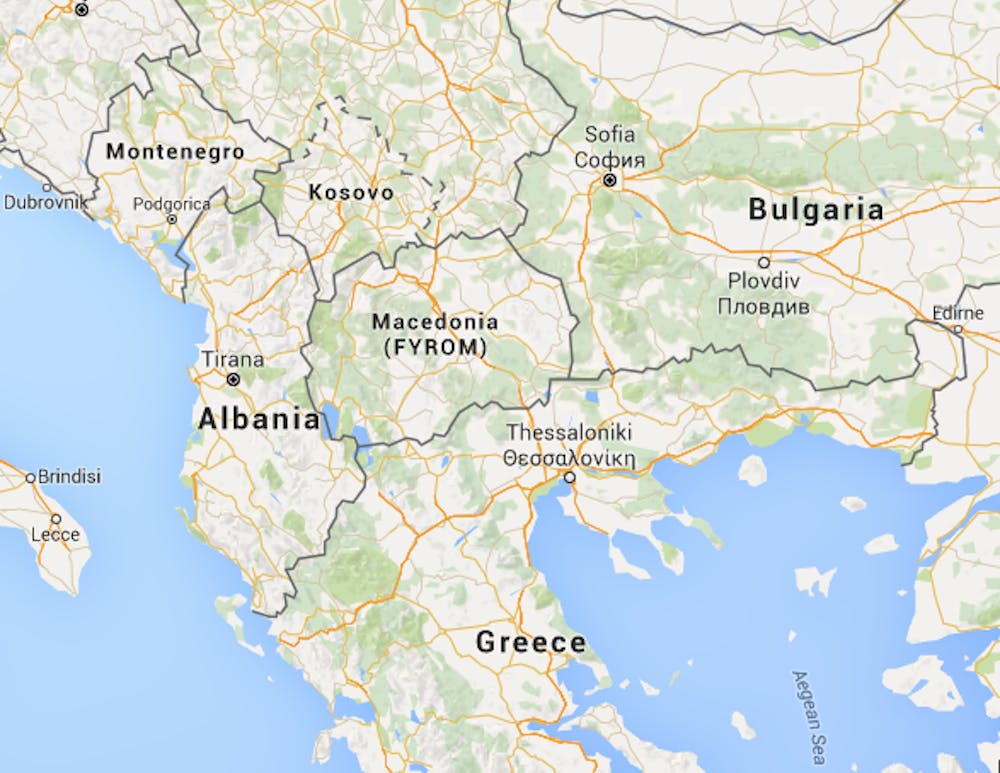In Macedonia, students who are accepted into and attend any of the world’s top 100 universities are eligible to receive funding to cover tuition, living and traveling costs.
Hopkins alumnus Stefan Andonovski was a recipient of this grant. He graduated in 2015 with a Master’s in Conflict Management and International Economics with honors from the Paul H. Nitze School of Advanced International Studies (SAIS).
Spiro Ristovski, Macedonia’s Minister of Education and Science, spoke to The News-Letter about the implementation of this initiative.
“We started this program four years ago in Macedonia. The first year was the toughest in implementation and explanation to the public in general. After that the second year, the third year, now the fourth year, it’s much easier because it’s a very much known program to Macedonian students and to Macedonian society.”
When the program was first introduced, only 14 students participated. This year, however, there are 150 students who are currently studying in foreign universities under the initiative, and 24 students have qualified for the program for the next academic year. These numbers encompass all levels of post-secondary education, not just the undergraduate level.
“The offer stands for undergraduate levels, for graduate levels, for Master’s studies,” Ristovski said. “We are supporting graduate studies in a top 100 [school], master’s studies in a top 100, and also Ph.D. studies in a top 100. So we have three parts to this program.”
Among the students participating in the program, the majority are working toward Master’s degrees, with the number of Ph.D. students the smallest.
The Academic Ranking of World Universities compiled by Jiao Tong University in Shanghai dictates the list of the institutions that qualify for being considered a “top 100 university.” Of these, the vast majority are American universities, with some East Asian, European and Australian universities. Most students study abroad in the U.S.
The biggest challenges of implementing this program were demonstrating the government’s strong involvement with and commitment to ensuring the success of the initiative and making clear the obligations of both sides. Not only would the government promise to fully fund the student’s education, but the student would have to apply their education and experience in order to benefit Macedonia.
In return for the financial backing provided, students who study under the initiative are required to return to Macedonia upon successful graduation to work in any capacity for the public or private sector.
“We are not obligating them to work in a state institution, we are saying that they should come here and work in Macedonia,maybe in a private company... Now the biggest challenge is to prepare society for the [acceptance] of that group of students in some state or private institutions or companies in which they will implement their experience from the universities, and normally their knowledge to be implemented in Macedonian society in general,” Ristovski said.
According to him, the most important goal of the program is to help the economic growth and the educational system of the country. Additionally, students are now limited to certain areas of study in accordance with the requirements.
“The first two years they were free to actually decide which area they will go into to study,” Ristovski said. “But [now] every year the government will make a decision about which areas will be supported from our side. From our last year, for the first time we decided, and made part of the public announcement, that the scholarships will be awarded for studies in law, technical science, architecture, fuel engineering, mathematics, economics, finance, physics, biology, chemistry and genetics.”
The supported areas of study are the same for this year, and this was implemented in order to directly fulfill, according to Ristovski, the needs of Macedonia’s labor market and international markets.
Andonovski, who earned his Bachelor’s degree in legal studies from the Saints Cyril and Methodius University of Skopje in Macedonia, said that the extensive grants he received from the government were integral to his ability to study and succeed at SAIS.
“Funding my secondary education at an U.S. institution was extremely difficult to organize. The estimated costs for a two-year program surpassed $80,000. At the time I applied, that was 80 times the monthly salary of both of my highly-educated parents,” Andonovski wrote in an email to The News-Letter. “Not only was the scholarship my only way forward, but it also motivated me to work harder on my eøducation. The ability to focus solely on my studies, without a need for extra job or other engagements, allowed me to achieve outstanding results.”
He now works as an economic advisor for Zegin, a private pharmaceutical company based in the Macedonian capital Skopje, in the Department for Healthy Food. He said his education from SAIS gave him the knowledge to find a job where he can combine his love of foreign languages and international business relations.
Under the contracted terms of the scholarship, Andonovski said that he was obligated to wait for six months on call from governmental institutions before he was allowed to look for a job in the private sector in Macedonia.
He wrote that overall, he was grateful for the financial support he was granted by the Macedonian government’s initiative.
“One thing I learned studying in the U.S. was that many of my classmates were not given the same opportunities to pursue their interests,” Andonovski wrote. “And if they were, they left college saddled with unmanageable student debt.”





